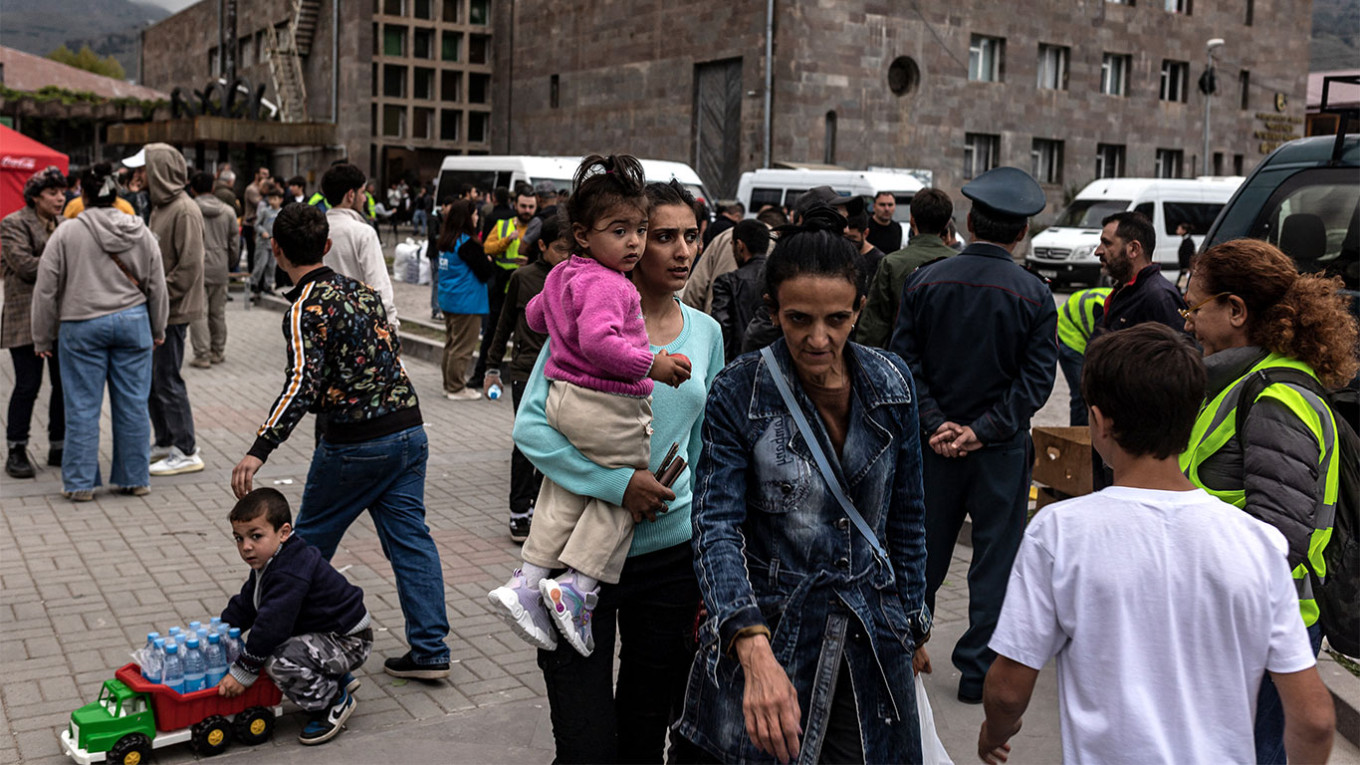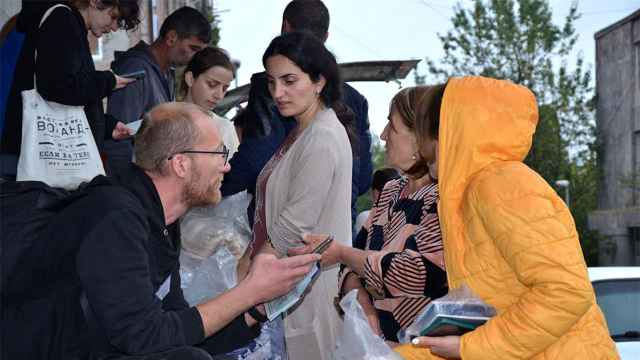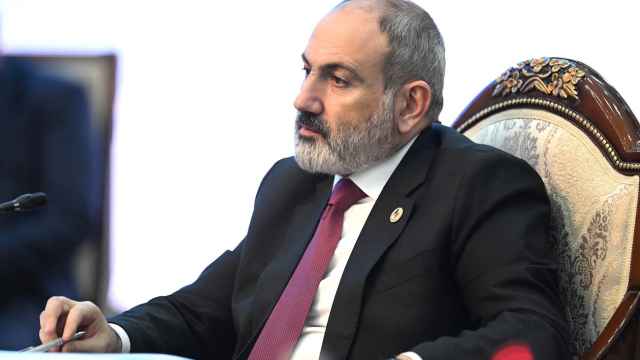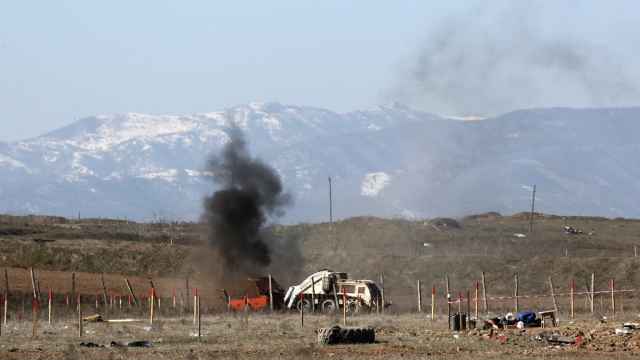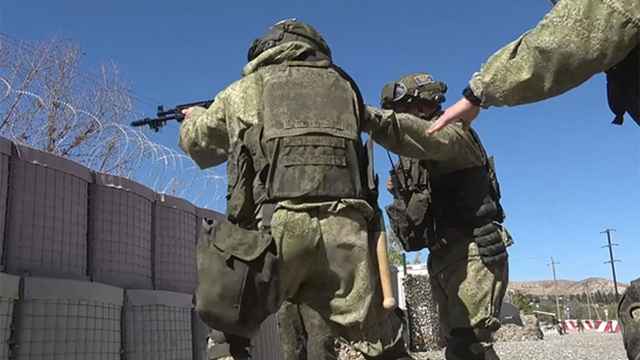SYUNIK PROVINCE, Armenia — “When I go to bed at night, I don’t think: ‘Is my phone on charge or have I brushed my teeth?’ I think: Do I know where my parents are and is my bag packed to evacuate?”
These are the nightly thoughts of Mariam, a 22-year-old teacher living in southern Armenia’s Syunik province, 10 kilometers from the border with Azerbaijan. She’s standing in the Soviet-era sports hall of Goris State University and has just finished a class on emergency first aid. Next up: Kalashnikov shooting techniques.
Mariam is undertaking a three-month program run by VOMA, a paramilitary group that has variously been described as a survival school and a civil defense organization — or, if you’re a member of the Azerbaijani government, a terrorist group.
No matter how it is characterized, VOMA’s stated aim is a serious one: to prepare Armenian civilians to defend their country.
The attendees here seemingly hail from every corner of the community, from young mothers to university students. Along with first aid and weapons training, they’ll also take lessons in mountaineering, a crucial skill in the rugged alpine terrain that flanks the 900-kilometer border with Azerbaijan.
Of the 22 VOMA branches spread across Armenia, “the location of this branch is significant because of the vulnerability of this border area,” says Vartan, its 42-year-old head instructor.
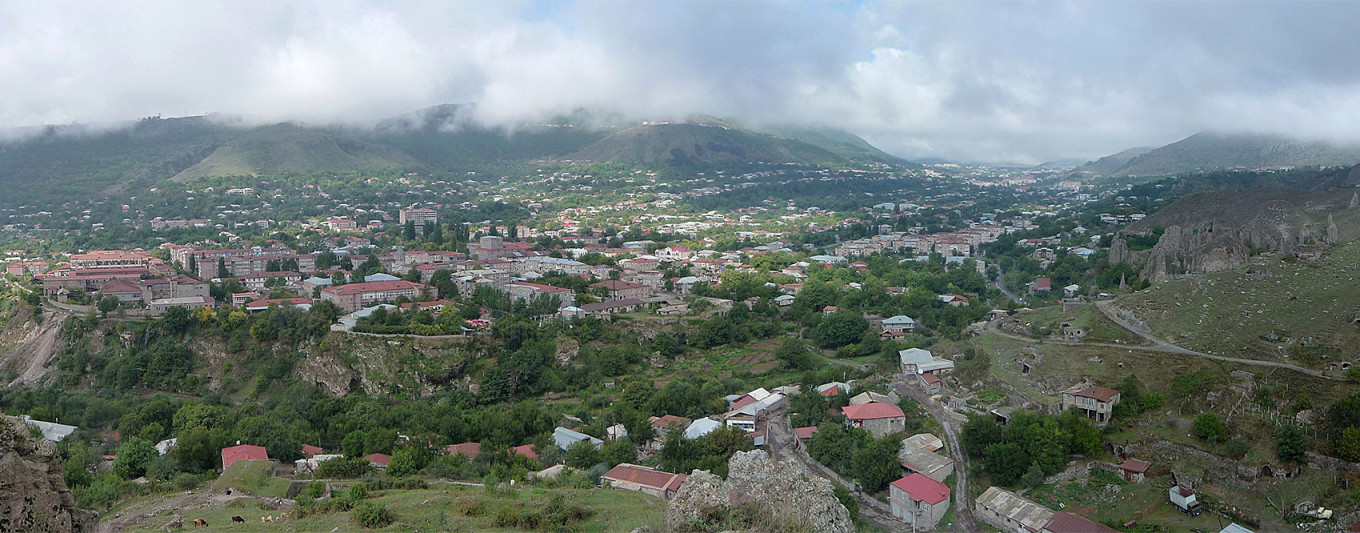
VOMA has seen a significant uptick in attendees since Azerbaijan launched its lightning military offensive on the breakaway region of Nagorno-Karabakh in September, taking it under in 24 hours and sending its 100,000-strong ethnic Armenian population fleeing into Armenia proper.
Most, crammed into cars or the back of open-top trucks, passed through this very town, which over the past fortnight morphed into an international crisis center. The Red Cross, The World Food Program and a host of national aid missions, including USAID head Samantha Power, poured in to show support. Tents went up, food packages were delivered, and the international media showed up in droves.
But for many of the residents of this region who feel abandoned by the international community, this display was too little, too late.
“Of course I’m let down,” Vartan said. “I was waiting for something that didn’t happen. But we just have to have hope.”
According to many here, the bulk of the blame lies squarely at the feet of Armenia’s historic ally Russia, who, despite promises to mediate the conflict and the presence of 2,000 Russian peacekeepers in the region, did little to intervene.
Russia’s inaction marks a historic shift in its regional policy. In the past, Armenia has been able to rely on Russia to moderate disputes, supply arms and play politics. Though this hasn’t always been in Armenia’s favor, they’ve generally done enough to support Yerevan.
To this day, Russian border guards patrol Armenia’s borders with Turkey and Iran. In Armenia’s second city of Gyumri, a vast Russian military base houses an estimated 3,000 soldiers. The vast majority of Armenia’s gas supply comes from Russia.
These entanglements make any future split from Russia all the more difficult for Armenian Prime Minister Nikol Pashinyan.
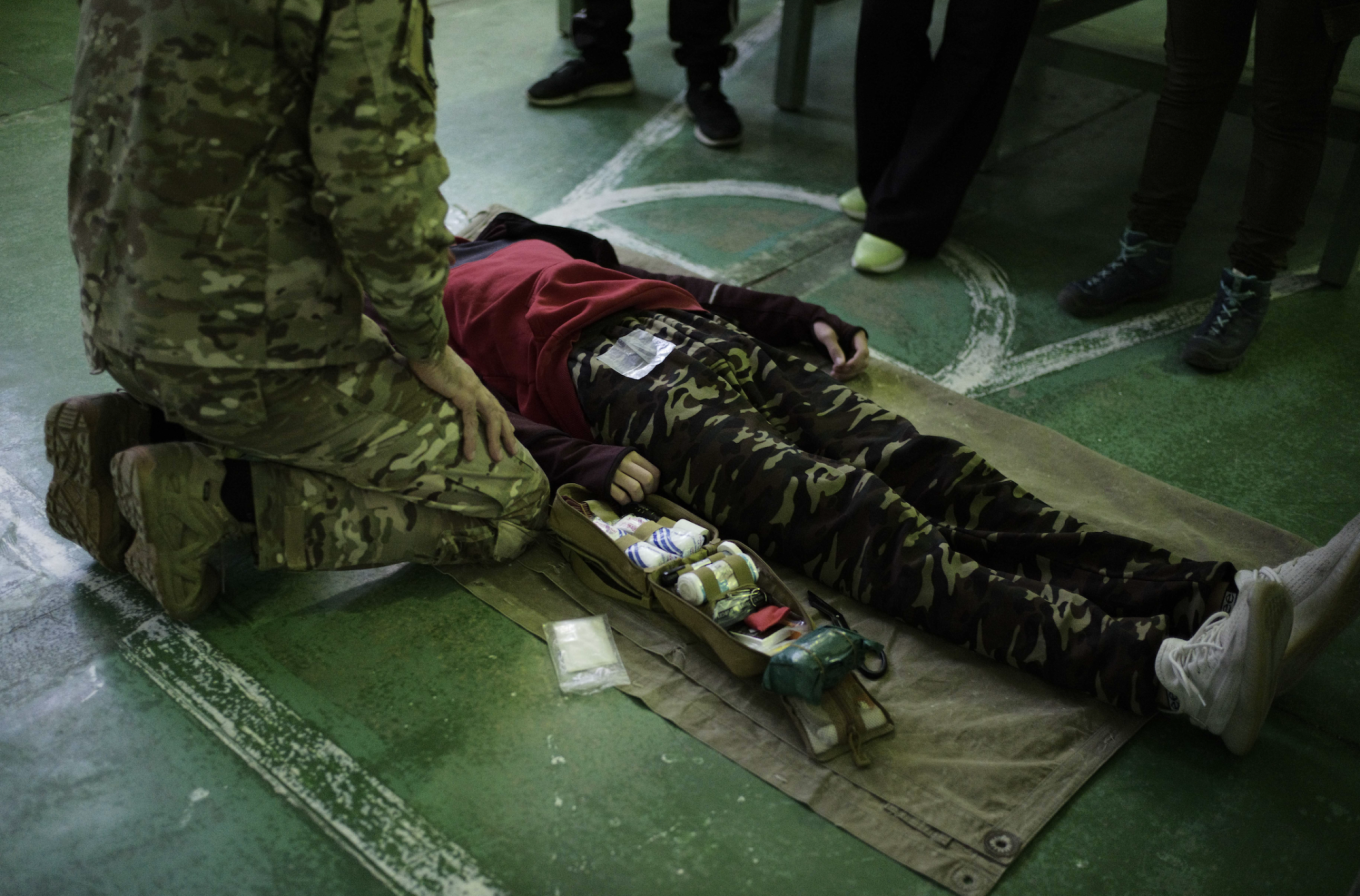
Experts say the reasons for Russia’s cold shoulder are complex: the Ukraine war has left Russia internationally isolated, meaning that southern partners that provide a link to global markets — such as Turkey, Azerbaijan and Iran — have become much more valuable.
But it’s also likely that Armenia’s recent overtures to the West have angered the Kremlin. At the start of September, Yerevan carried out joint training drills with the U.S. military and sent an aid package to Ukraine personally delivered by Pashinyan’s wife Anna Hakobian.
Armenia’s parliament strained relations further when, in a rebuke to Moscow, it voted to join the International Criminal Court — meaning that if President Vladimir Putin were to step foot on Armenian soil, Yerevan would be obliged to arrest him.
Last week, Armenia was the only member of the Moscow-led CSTO alliance to skip a meeting of alliance leaders in Minsk, and Pashinyan said that Russia had failed to deliver weapons Yerevan had already paid for and accused Russia's media of destabilizing his country's political situation.
“Armenia cannot count at all on Russia in terms of its own security, so this ICC vote is a message to the West from the Armenian government that they are really willing to go further in distancing themselves from Russia,” Stefan Meister, head of the Center for Order and Governance in Eastern Europe, Russia, and Central Asia at the German Council on Foreign Relations, told The Moscow Times.
“But I think it's a very dangerous bet they are doing because I don't see that the West will really support Armenia in a way that it needs. For the West, it’s a question of how you show support. Do you send soldiers? Peacekeepers? Do you build up leverage on Azerbaijan with sanctions?”
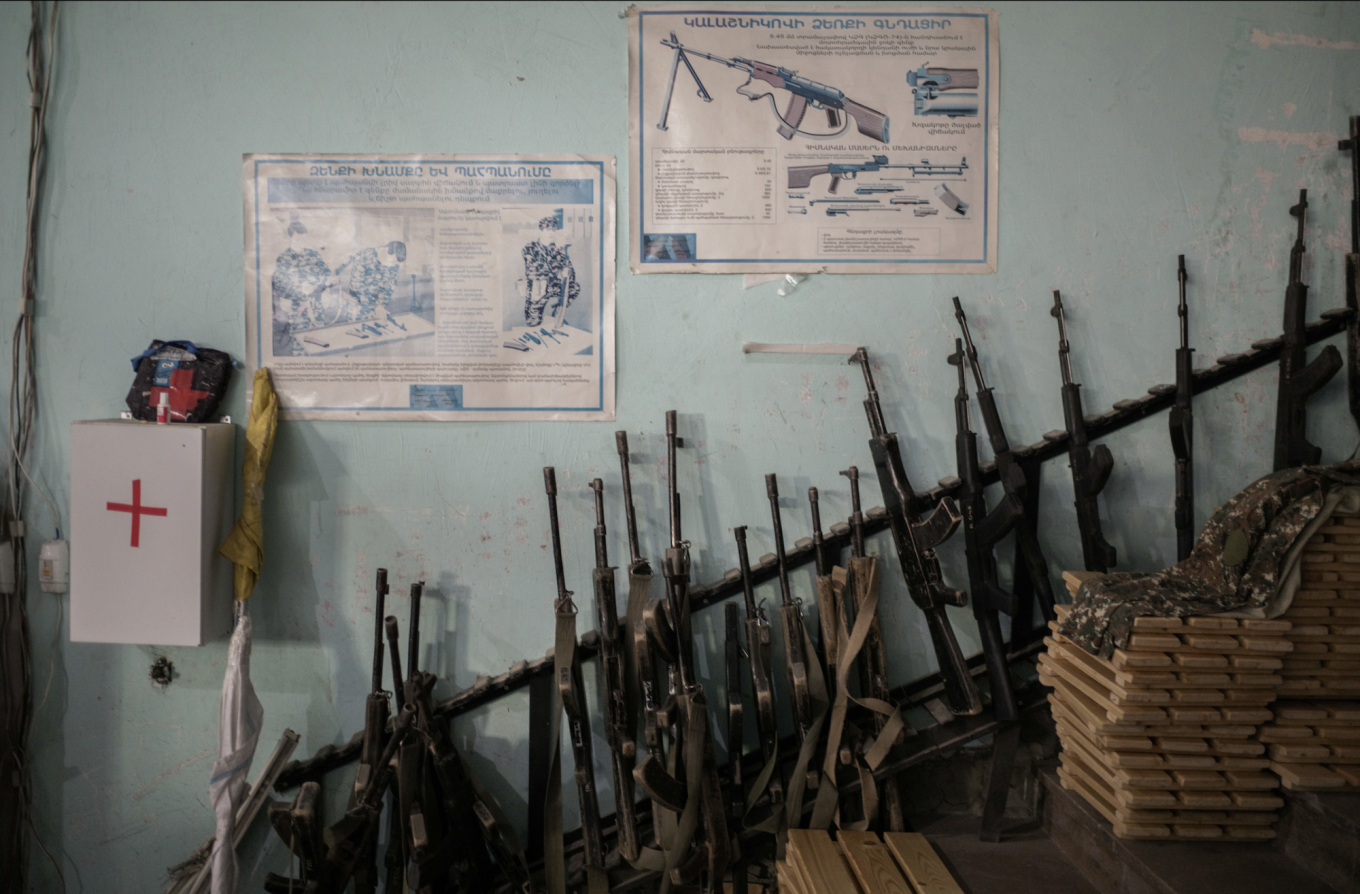
According to Meister, that latter option appears unlikely. As a result of Western sanctions on Russia, many EU countries have turned to Azerbaijan as an alternate gas supplier. It’s unlikely that any country would want to sanction a key energy provider, leaving Armenia in a difficult negotiating position.
As geopolitical moves are played out in capitals across Eurasia, the lack of a firm international response to the Nagorno-Karabakh situation has raised fears that Azerbaijan could attempt to create a land corridor to its exclave of Nakhichevan by capturing parts of southern Armenia.
“What’s worrying from the Armenian standpoint is this convergence of interests between Azerbaijan, Russia, and Turkey to open this corridor. And in the region, the only power kind of opposing it is Iran,” Karena Avedissian, a senior analyst at the Regional Center for Democracy and Security, told The Moscow Times.
For the VOMA trainees in Syunik province, the specter of war casts a long shadow.
“I think we will see a growing instability of Armenia, which has lost orientation and has no one who supports it really in a serious way,” says Meister.
The names of VOMA members have been changed to protect their identities.
A Message from The Moscow Times:
Dear readers,
We are facing unprecedented challenges. Russia's Prosecutor General's Office has designated The Moscow Times as an "undesirable" organization, criminalizing our work and putting our staff at risk of prosecution. This follows our earlier unjust labeling as a "foreign agent."
These actions are direct attempts to silence independent journalism in Russia. The authorities claim our work "discredits the decisions of the Russian leadership." We see things differently: we strive to provide accurate, unbiased reporting on Russia.
We, the journalists of The Moscow Times, refuse to be silenced. But to continue our work, we need your help.
Your support, no matter how small, makes a world of difference. If you can, please support us monthly starting from just $2. It's quick to set up, and every contribution makes a significant impact.
By supporting The Moscow Times, you're defending open, independent journalism in the face of repression. Thank you for standing with us.
Remind me later.



